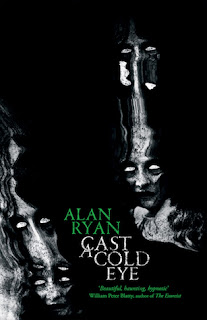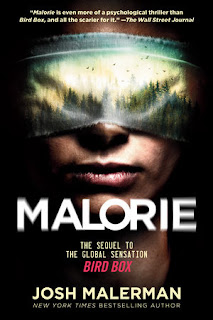{Put This One on Your TBR List}
Book Review: The Small
Hand and Dolly by Susan Hill
by Karen S. Wiesner
Susan Hill is one of those authors that effortlessly puts you directly into the fictional settings and personal lives of her characters (many of her stories are ghost and/or horror) with so much atmospheric reality, you're convinced of the authenticity of everything. Two stories that seem to go together extremely well are The Small Hand and Dolly. Both are unforgettable ghost stories.

The Small Hand was published in 2010. In this story, an antiquarian book dealer gets lost in the countryside after visiting a client and ends up at a derelict Edwardian House. While there, he's compelled to the entrance, where he feels a small hand slip into his own. This experience haunts him over the next several weeks, plaguing him with nightmares, unexpected panic attacks, along with further visits from this disembodied, ghostly small hand. His only choice is to delve deeply into the mystery of the house and its desolate, overgrown garden.
While the description of this story may sound vaguely silly, nothing about the story was that. The mere idea of this experience was always rendered as a genuinely chilling occurrence. I invested myself in this tale, as well as into the point of view of the main character with his investigations. I wanted to know what was going on. The answer wasn’t what I was expecting—the twist was even better than I could have hoped for.

In Dolly, published in 2012, the main character is a boy Edward sent to live with his aunt. While there, his like-aged, spoiled cousin Leonora comes to stay for the "holiday" as well. They're the children of siblings who hated each other. Their aunt Kestrel was the older sister of the two siblings. Kestrel's decaying Iyot House is situated in the damp, desolate Fens of Eastern England. Edward is polite and withdrawn, having learned to keep his thoughts private to avoid trouble. What a contrast he is to his bratty cousin who throws a fit about everything and anything. While the reader can't help feeling sorry for her because the girl's mother treats her like possession she's only sometimes in the mood for having around, sympathy can only go so far with such bad behavior. The one thing Leonora has always wanted from her mother is a specific doll. Knowing only that Leonora wants a doll for her birthday, Kestrel makes a special trip to get her a beautiful, expensive one. However, it's not the one Leonora has always wanted. She proceeds to smash it in her terrible rage at again not getting what she wanted (and probably not from the person she'd wanted it from). Edward picks up the pieces and puts it back in the box. All that night, he hears the paper around the shattered doll rustling along with crying. At first he puts the box under his bed, then into a deep cupboard, but the crying so haunts him, he eventually takes it and buries it in the church cemetery not far from the house.
Edward is a character you can’t
help but love. The author put us directly into his situation, into his heart
and mind, seamlessly. I could feel his shock and even a bit of awe at his
cousin, who was beautiful to look upon, but his wariness toward her was
warranted. Even as he longed for a companion, she was too selfish and volatile.
The story also takes place when they're adult, after their aunt had died and
her will is to be read. Even then, the characters are wonderfully brought to
life.
The brilliance in this disturbing horror story is in the delicate hand the author displayed in fleshing out the psychology of the characters. Edward and Leonora are opposites--light and dark, good and evil. But light and dark, good and evil aren't easily defined or examined. Using the doll to explore the angle of whether evil is inherent or whether psychological damage causes it leads to a question about forgiveness or the lack thereof passing down through the generations of a family like a dark stain that those who experience it (firsthand, second, and on and on) can never wash off.
Note that both of these stories are published separately as well as in the author's own collections.
Karen Wiesner is an award-winning,
multi-genre author of over 150 titles and 16 series.
Visit her website here: https://karenwiesner.weebly.com/
and https://karenwiesner.weebly.com/karens-quill-blog
Find out more about her books and see her art here: http://www.facebook.com/KarenWiesnerAuthor
Visit her publisher here: https://www.writers-exchange.com/Karen-Wiesner/












































